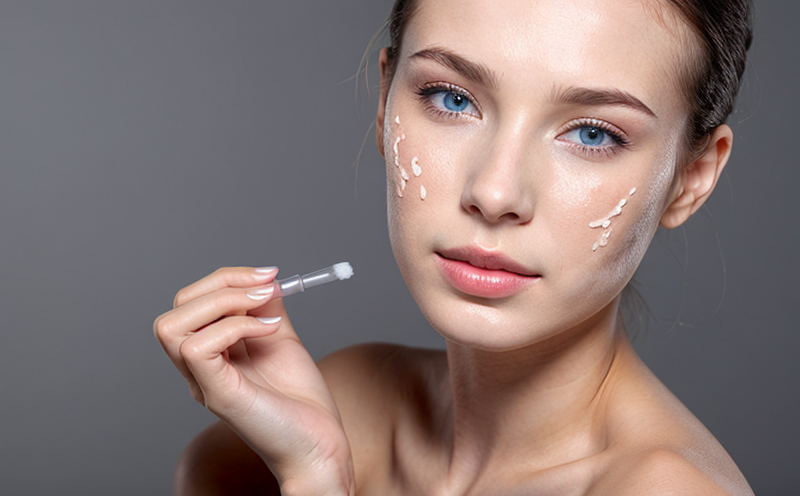Sensitization Testing in Skin Serums and Oils
The process of sensitization testing is crucial for ensuring that cosmetic products do not cause adverse reactions when used by consumers. Sensitization refers to the ability of certain chemicals or substances to induce an immune response, leading to allergic reactions. This type of testing is particularly important in skin serums and oils due to their concentrated nature and high absorption rates.
For quality managers, compliance officers, R&D engineers, and procurement professionals, understanding the intricacies of sensitization testing is essential. The goal here is not merely to comply with regulations but also to ensure that products are safe for use by consumers. This service provides a comprehensive approach to detecting potential allergens in cosmetic formulations.
The testing involves multiple stages, starting from the selection of appropriate specimens and reagents, followed by precise laboratory procedures using specialized equipment. The results are then analyzed meticulously before final reports are generated. Compliance with international standards such as ISO 10993-10 is paramount to ensure reliability and accuracy.
One significant challenge in sensitization testing lies in identifying the exact components responsible for triggering allergic reactions. Advanced analytical techniques play a vital role here, allowing researchers to pinpoint specific irritants. Another critical aspect is understanding the mode of action of these compounds within the skin matrix.
Given the complexity involved in this type of testing, it's crucial to work with reputable laboratories equipped with state-of-the-art facilities. Eurolab, for instance, offers robust services tailored specifically towards sensitization testing in skin serums and oils. Their expertise ensures that clients receive accurate results that meet both regulatory requirements and internal quality standards.
It is important to note that while this service focuses primarily on detecting allergens, it also helps manufacturers refine their product formulations, reducing the risk of adverse effects during use. By incorporating feedback from these tests into future development cycles, companies can enhance the overall safety profile of their cosmetic products.
Scope and Methodology
| Test Procedure | Description |
|---|---|
| Specimen Preparation | The first step involves preparing samples from various batches of skin serums and oils. Samples must be homogenized to ensure consistency before further processing. |
| Dilution Series | A dilution series is created using different concentrations of the test substance. This allows for accurate quantification of potential allergens present in each batch. |
| In Vitro Testing | Standardized cultures of human white blood cells are exposed to the diluted samples under controlled conditions. Any observable changes indicate possible sensitization effects. |
| Observation Period | A specified observation period follows exposure, during which any signs of allergic reactions are carefully monitored and recorded. |
The methodology employed by Eurolab adheres strictly to internationally recognized guidelines. This ensures that all tests conducted are consistent with best practices globally. The use of validated protocols guarantees reliable outcomes, enhancing confidence in the results obtained.
Eurolab Advantages
- State-of-the-Art Facilities: Our laboratories are equipped with cutting-edge technology that enables precise measurements and accurate analyses.
- Experienced Professionals: Our team comprises highly skilled chemists, biologists, and engineers who possess extensive experience in cosmetic science.
- Comprehensive Reporting: Detailed reports accompany every test result, providing insights beyond mere pass/fail outcomes.
Choosing Eurolab for your sensitization testing needs offers peace of mind knowing that you're partnering with industry leaders committed to excellence. With us, you can trust in consistent quality and thorough analysis.
Environmental and Sustainability Contributions
- Eco-friendly Reagents: We use environmentally friendly reagents whenever possible, minimizing waste generation throughout our processes.
- Energy Efficiency: Our facilities are designed to operate efficiently, reducing energy consumption without compromising on performance levels.
Sustainability is a key pillar of Eurolab's operations. By adopting sustainable practices in all aspects of our business, we contribute positively towards environmental conservation efforts.





